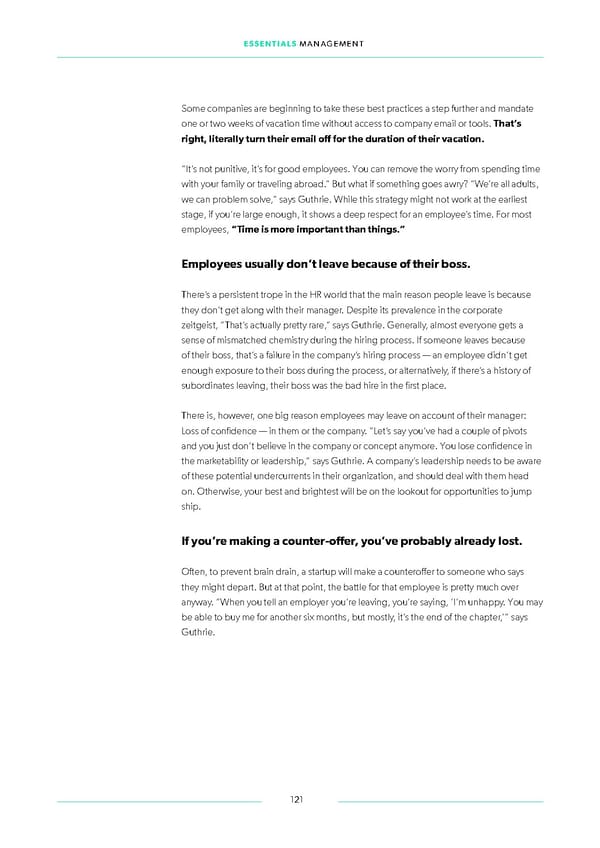ESSENTIALS MANAGEMENT Some companies are beginning to take these best practices a step further and mandate one or two weeks of vacation time without access to company email or tools. That’s right, literally turn their email off for the duration of their vacation. “It’s not punitive, it’s for good employees. You can remove the worry from spending time with your family or traveling abroad.” But what if something goes awry? “We’re all adults, we can problem solve,” says Guthrie. While this strategy might not work at the earliest stage, if you’re large enough, it shows a deep respect for an employee’s time. For most employees, “Time is more important than things.” Employees usually don’t leave because of their boss. There’s a persistent trope in the HR world that the main reason people leave is because they don’t get along with their manager. Despite its prevalence in the corporate zeitgeist, “That’s actually pretty rare,” says Guthrie. Generally, almost everyone gets a sense of mismatched chemistry during the hiring process. If someone leaves because of their boss, that’s a failure in the company’s hiring process — an employee didn’t get enough exposure to their boss during the process, or alternatively, if there’s a history of subordinates leaving, their boss was the bad hire in the ifrst place. There is, however, one big reason employees may leave on account of their manager: Loss of conifdence — in them or the company. “Let’s say you’ve had a couple of pivots and you just don’t believe in the company or concept anymore. You lose conifdence in the marketability or leadership,” says Guthrie. A company’s leadership needs to be aware of these potential undercurrents in their organization, and should deal with them head on. Otherwise, your best and brightest will be on the lookout for opportunities to jump ship. If you’re making a counter-offer, you’ve probably already lost. Otfen, to prevent brain drain, a startup will make a counteroffer to someone who says they might depart. But at that point, the battle for that employee is pretty much over anyway. “When you tell an employer you’re leaving, you’re saying, ‘I’m unhappy. You may be able to buy me for another six months, but mostly, it’s the end of the chapter,’” says Guthrie. 121
 Essentials Management First Round Capital Page 120 Page 122
Essentials Management First Round Capital Page 120 Page 122